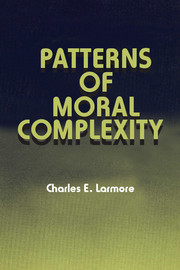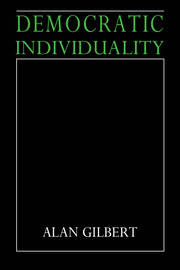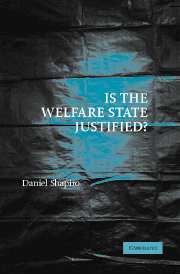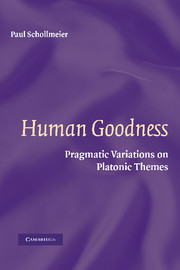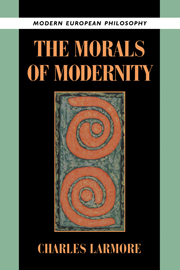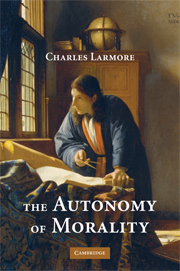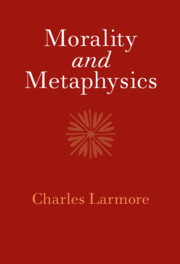Patterns of Moral Complexity
Larmore aims to recover three forms of moral complexity that have often been neglected by moral and political philosophers. First, he argues that virtue is not simply the conscientious adherence to principle. Rather, the exercise of virtue apply. He argues - and this is the second pattern of complexity - that recognizing the value of constitutive ties with shared forms of life does not undermine the liberal ideal of political neutrality toward differing ideals of the good life. Finally Larmore agrues for what he calls the heterogeneity of morality. Moral thinking need not be exclusively deontological or consequentialist, and we should recognize that the ultimate sources of moral value are diverse. The arguments presented here do not attack the possibility of moral theory. But in addressing some of the central issues of moral and political thinking today thay attempt to restore to that thinking greater flexibility and a necessary sensitivity to our common experience.
Product details
April 1987Paperback
9780521338912
212 pages
228 × 152 × 18 mm
0.355kg
Available
Table of Contents
- 1. Moral judgement - an Aristotelian insight
- 2. The limits of neo-Aristotelianism
- 3. Liberalism and the neutrality of the state
- 4. The political order and personal ideals
- 5. Political romanticism
- 6. The heterogeneity of morality
- Conclusion.

